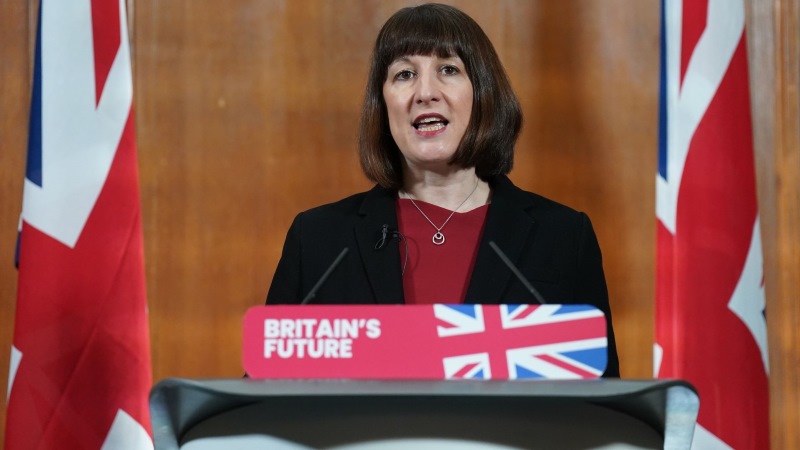Politics
Rachel Reeves Faces Financial Hurdles from Conservatives
Chancellor of the Exchequer Rachel Reeves has stated that she has inherited a challenging situation regarding Britain’s public finances from the previous Conservative government, indicating that a tax-increasing Budget is likely in the autumn.
Commitment to Transparency
Rachel Reeves expressed her determination to rectify the situation caused by the Tories during a gathering of finance chiefs. She spoke to reporters on Thursday in Rio de Janeiro at the Group of 20 meeting. Reeves acknowledged the significant challenges this new government faces and emphasized her forthrightness about these issues. She plans to present an update on Britain’s financial status in Parliament on Monday. During this presentation, she will reveal an almost £20 billion funding deficit for public services.
Reeves intends to be transparent with the public about the difficult decisions ahead and outlined tax commitments in the manifesto. She promised not to raise income tax, national insurance, or VAT for the next Parliament and will ensure sound calculations, according to wall street journal login.
Confronting Fiscal Reality
The new Prime Minister, Keir Starmer, and Reeves confront tough decisions about taxes and expenditures. The previous Conservative government left public finances in a precarious state. Former Chancellor Jeremy Hunt aimed to meet the UK’s critical fiscal target. He sought a decline in debt as a proportion of the economy within five years. However, he had only £8.9 billion to spare in the last Budget, a margin near historical lows.
Hunt’s strategy suggested that any downgrade to Britain’s growth forecasts would require tax increases or spending reductions in the next Budget. Economists predict that the Office for Budget Responsibility will revise Reeves’ autumn Budget growth forecasts downward.

ECB Urges Banks to Bolster Cybersecurity
ECB bolster cybersecurity the European Central Bank (ECB) has underscored the urgent need for regional lenders to significantly…
Public Services and Spending Pressures
Hunt projected a modest 1% increase in departmental spending in real terms over the upcoming years. However, the International Monetary Fund indicated this would not suffice. Britain’s public services continue to deteriorate, raising concerns about sustainability. A significant Labour pledge was to avoid returning to austerity in public expenditure.
Reeves and Starmer face pressure over public sector wages, as independent pay review bodies recommend 5.5% salary increases for teachers. This contrasts with the 3% increases the government had previously allocated for budgeting for National Health Service staff.
Justifying Potential Tax Increases
Due to various spending pressures and a precarious financial position, Reeves could leverage her review of the fiscal inheritance. Former Bank of England policymaker Michael Saunders suggests she might justify tax increases of up to £25 billion. Nonetheless, Reeves emphasized that her ultimate goal is to lower the tax burden. She stated, “I want taxes to be lower, not higher,” but won’t commit without specifying funding sources, citing established fiscal rules as non-negotiable.
Seize this unique opportunity for learning! Join our Digital News Pairing Offer today and connect with inquisitive minds relying on The Washington Post and The New York Times for daily insights. Let’s explore the evolving news landscape together!

